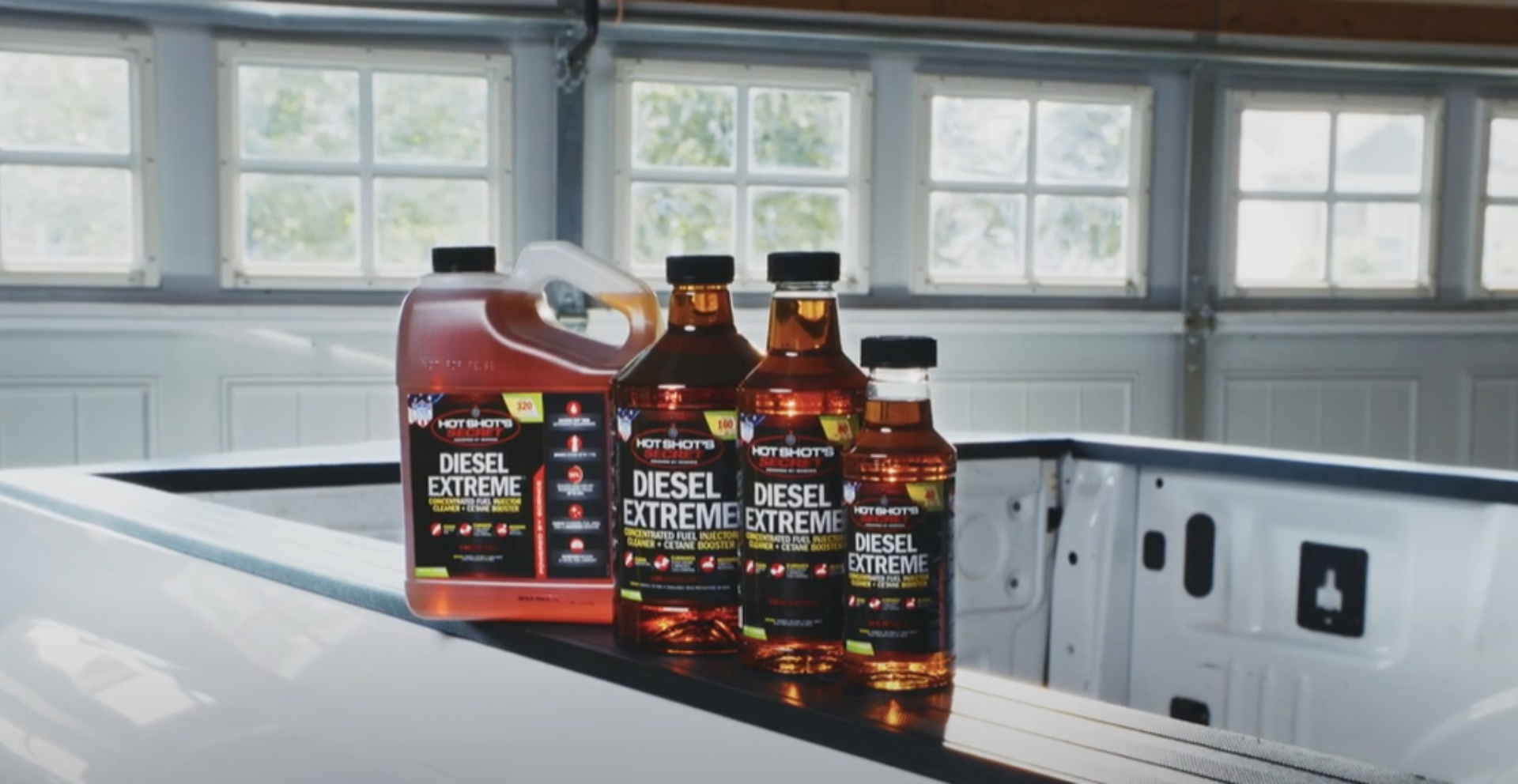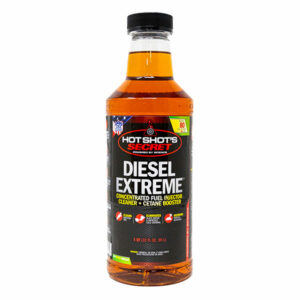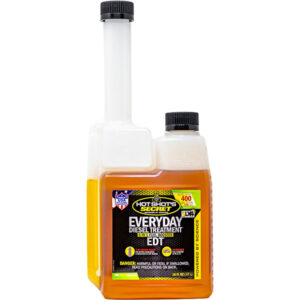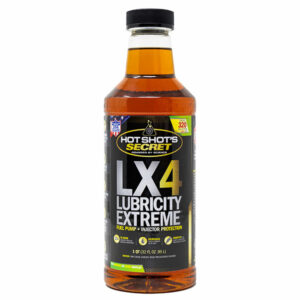
DPF delete describes the controversial removal of an engine’s diesel particulate filter. This guide breaks down the potential advantages and consequences of a system delete to help diesel vehicle owners make an informed decision.
Understanding DPF and DEF Systems
A diesel particulate filter (DPF) removes diesel particulate matter, primarily soot and ash from the combustion process, from an engine’s exhaust gas. Trapping and burning the particles prevents them from accumulating on engine components to reduce wear and prevent contaminants from being released into the environment.
In addition to the DPF, diesel engines use diesel exhaust fluid (DEF) to reduce nitrogen oxide (NOx) emissions, which are associated with smog, acid rain and ozone. In a process called selective catalytic reduction (SCR), DEF is injected into the exhaust stream to turn harmful NOx into nitrogen and water.
The DPF and DEF systems play a role in reducing vehicle emissions and meeting government regulations. The United States Environmental Protection Agency regulates diesel fuel to reduce harmful emissions. By preventing the particles from entering the atmosphere, vehicles can reduce their emissions.
What Is a Deleted Diesel?
DPF delete is the process of removing all components of a diesel engine’s emissions system to avoid buildup. These components include the DPF and NOx filters and the DEF and EGR systems. The hardware delete aims to improve engine performance, fuel mileage and torque. However, unfiltered diesel exhaust contains harmful chemicals.
DEF system deletion refers to preventing the ECU software from detecting the missing DPF hardware. Electronically deactivating the associated systems prevents the truck’s computer from detecting any issues and sending error codes, which prevents limp mode. Successfully deleting the DEF system might eliminate the need to routinely purchase and refill DEF fluid.
Why Do Diesel Owners Consider DPF and DEF Deletes?
Performance gains and reducing maintenance costs are the primary reasons diesel vehicle owners consider removing the DPF and bypassing the DEF. Some diesel owners believe that deleting these filtration and exhaust systems will improve engine power and fuel efficiency. Buildup requires upkeep, and clogs can result in costly repairs. Some diesel engine owners hope to reduce their operating costs by deleting the diesel emission system.
The Risks of DPF and DEF System Deletions
The potential power gains and reduced maintenance from DPF and DEF deletes can be short-lived. Serious risks are associated with deleting diesel emission systems.
Legal Consequences
Removing the DPF and DEF systems violates EPA emissions regulations, like the Clean Air Act. Without these systems, tailpipe emissions significantly increase.
Uninstalling this hardware is illegal in most jurisdictions, resulting in fines and the potential inability to pass emissions inspections. In the United States, deleting diesel emissions systems is a federal crime with a $5,000 fine per non-emissions part. The fine is even higher for businesses that sell and install DPF and DEF delete devices.
Environmental Impact
A DPF and DEF delete increases pollution. Harmful particles and fumes cannot become trapped and burned without a filter, instead releasing into the environment. Deleting the systems leads to higher emissions of harmful pollutants like soot and NOx, negatively affecting air quality and public health.
Impact on Vehicle Warranty
Removing the diesel engine’s DPF or DEF system can void vehicle warranties, leaving owners responsible for any future repairs. A vehicle’s warranty will almost never cover consequences and damages from DPF and DEF deletes.
Technical Risks and Engine Performance Issues
Along with the legal penalties and environmental harm, your overall engine might falter. It will likely experience the following problems after DPF removal and DEF bypassing:
- Engine durability concerns: DPF and DEF deletes can lead to increased engine temperatures and stress on components, which could ultimately reduce the lifespan of your diesel engine.
- Negative effects on fuel economy: More particulate matter is released into the exhaust, leading to a decrease in fuel economy. While deleting these systems might provide initial fuel economy improvements, it ultimately can lead to long-term issues and reduced efficiency.
- Potential for engine failure: Soot buildup can cause long-term damage to the overall engine. Removing emissions systems increases backpressure and strains the turbocharger system, leading to expensive repairs.
Alternatives to DPF and DEF Deletes
Avoid the technical, legal and environmental risks associated with DEF and DEF system deletions by opting for aftermarket solutions and software tuning instead. These modifications can improve your engine performance and minimize emissions. They are generally safer options for your vehicle and the environment.
1. Aftermarket Solutions to Improve Performance
Alternative aftermarket solutions can improve engine performance without removing emissions control systems. You can enhance diesel performance with additives, such as Everyday Diesel Treatment for boosting power with every fill-up and the Original Stiction Eliminator for removing residue from burnt oil. Routine lubrication can decrease the likelihood of stubborn particle buildup.
High-flow filters can also extend your oil’s life and potentially improve engine protection and reliability. Many are designed to be washed and reused. A Frantz Filter Bypass System is today’s most efficient commercial oil filtering system. Even after driving thousands of miles, the oil filtered through it remains analytically clean and effective for further use. The handy Universal Frantz Bypass Oil Filter Kit comes with everything you need to install the filter system.
2. Software Tuning for Power and Efficiency
Professional software tuning of the engine control unit (ECU) can boost your diesel engine’s performance without physically deleting the important DPF and DEF systems. This option can provide short-term and long-term benefits. For example, you can adjust the boost pressure and fuel delivery parameters to increase your engine’s power output and optimize the air-fuel ratio to improve fuel economy. Tuning your engine can make it more responsive and enhance your overall driving experience.
Frequently Asked Questions
The experts at Hot Shot’s Secret provide technical expertise for your diesel engine. For further questions and concerns, fill out the Hot Shot’s Secret contact form, and we will get in touch.
What Is DPF Delete?
DPF delete is the process of removing the DPF filter and DEF system. It can potentially increase engine power and torque, but you risk legal fines, engine damage and harmful emissions. It can also make your diesel vehicle harder to sell later on.
How Much Does It Cost to Delete a Diesel Truck?
Depending on your vehicle and desired modifications, total DPF deletes can cost anywhere from $500 to $2,000 when completed by a professional. While it can seem like a low upfront cost, this pricing does not consider the expenses related to potential legal fines, voided warranty and engine damage you may encounter.
What Are Common Problems After DPF Removal?
Common consequences of deleting your engine’s DPF are decreased durability and fuel economy, which increases the likelihood of engine failure. Without a DPF to remove diesel particulate matter from an engine’s exhaust gas, harmful material is released into the exhaust. Potential results include engine problems that could have been avoided and increased pollution.
Is a DPF Delete Legal?
The DPF delete process is generally illegal because the DPF is designed to filter harmful pollutants. While some diesel operators are willing to take the risk, the process is ultimately against the law in some countries and against most vehicle warranties, so you will likely have to pay hefty fines and will be fully responsible for future repairs.
Hot Shot Can Help You Increase Diesel Performance
Despite the appeal of increased horsepower and fuel efficiency, DPF and DEF deletes can ultimately result in engine damage, legal consequences, voided warranties and pollution. Rather than deleting your engine’s DPF and DEF emission systems, seek alternative performance boosters such as fuel additives, high-flow filters and software tuning.
Hot Shot’s Secret’s high-performance additives and oils are expertly designed to clean and protect your diesel engine. They are backed by science and triple-threat tested. Explore our diesel products and product bundles to reduce your engine’s emissions without sacrificing performance.




